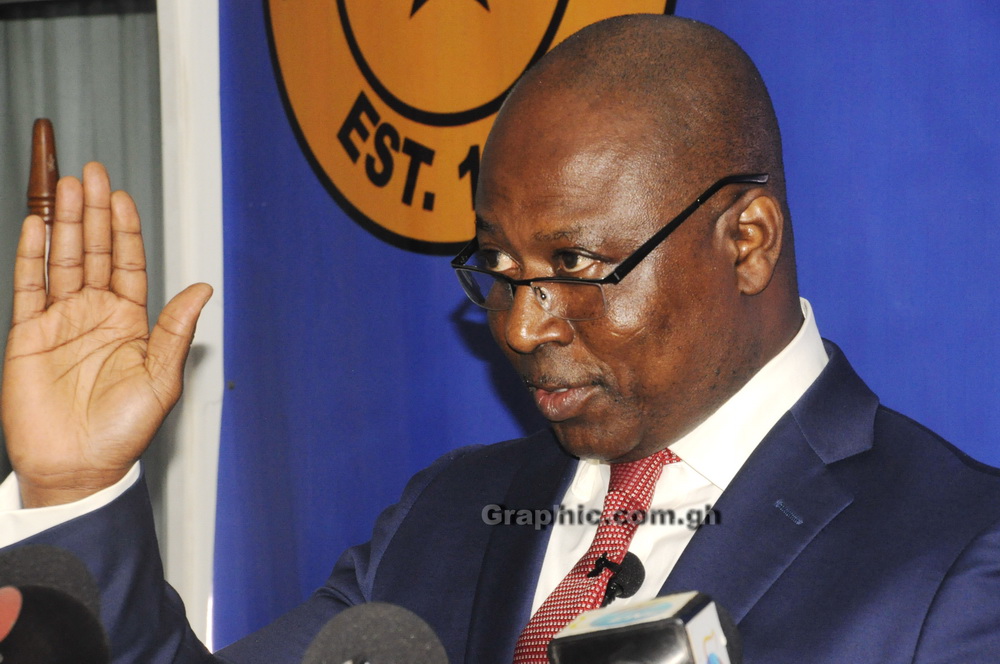
We have dollars; Banks move to dampen speculations
Commercial banks have given an assurance that they have adequate foreign currency supplies from the Bank of Ghana (BoG) to meet demands for United States (US) dollars.
Advertisement
Speculations about dollar shortage have fuelled a rush demand for the world’s most preferred trading currency, forcing the cedi to record some marginal losses.
But some heads of treasury at commercial banks who spoke to the Daily Graphic said they had enough reserves of dollars to meet demand.
The Head of Corporate Communications at Ecobank Ghana, Rev. (Mrs) Patricia Sappor, said the bank had enough dollars to meet customers’ demands.
“We will surely meet the needs of any customer who walks to any of our branches demanding dollars’’, she said.
The cedi/dollar exchange rate is expected to remain fairly stable around GH¢3.94 on the market, even in the face of a steadily growing demand from importers.
Other commercial banks on the High Street in Accra also gave similar responses.
The cedi has been relatively stable this year, cumulatively depreciating by only 4.4 per cent against the US dollar as of September.
It depreciated by 14.8 per cent in the same period of 2015.
The Head of Treasury at the Fidelity Bank, Mr Samuel Aidoo, said the bank had adequate supply of dollars to meet its clients’ needs.
“However, there is a small uptake in prices, which is not uncommon at this time of the year, but we do not expect this to persist”, he said.
The cedi crossed the GH¢4 mark against the dollar at the interbank market last Friday, November 11, but frequent dollar sales by the commercial banks have pushed the cedi to make some marginal gains against the dollar.
It was selling at GH¢3.94 to the dollar at the interbank market as of Tuesday, November 15.
The availability of dollars at the commercial banks confirms the BoG’s position that more dollars have been supplied to the banks than what the market actually requires.
But reports of dollar shortage on the market helped fuel increased speculations that exerted pressure on the cedi, forcing the local currency to begin a new round of decline against the dollar.
Election-year cycle
Analysts say in election years the cedi suffers fast rates of depreciation against the dollar. In 2008, a year after the re-denomination, the cedi cumulatively depreciated by 22.17 per cent against the dollar.
The highest rate of depreciation was, however, recorded in 2000 when the local currency depreciated by 49.90 per cent.
In 2012, the Ghana cedi depreciated against the US dollar by almost 20 per cent.
Commercial banks make average dollar sales of between $15 million and $20 million daily to support importers and others who require dollars to fund foreign payments.
Expected inflows
Analysts expect the local currency to make strong gains against the dollar next week on residual forex inflows from investors who took part in a 10-year domestic bond sale which was largely purchased by foreign investors.
The Ghana Cocoa Board (COCOBOD) is also expected to trap in an additional US$1.8 billion commodity purchase agreement which is a syndicated facility for cocoa purchase.
The current gains by the cedi stunned many analysts who had forecast that the local currency would close the year at between GH¢4.2 and GH¢4.3 to the dollar.
It is the first time the government has issued a foreign currency denominated bond on the domestic market and analysts believe such a move is important to provide a benchmark yield curve for the market, while making available more foreign exchange to keep the cedi stable.




